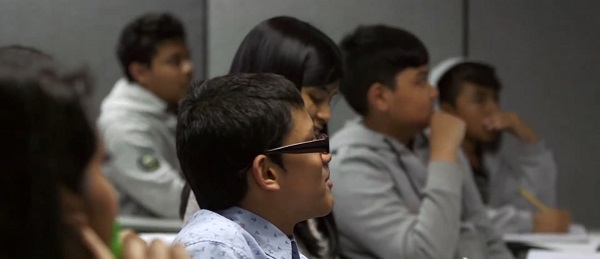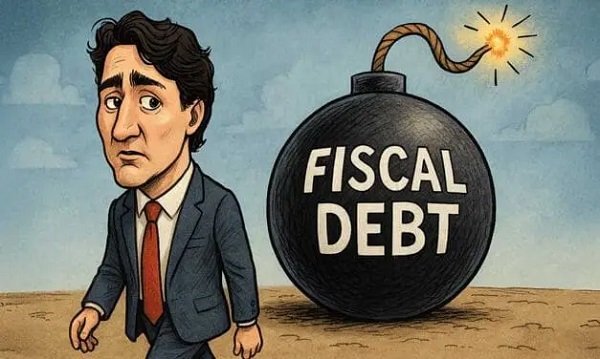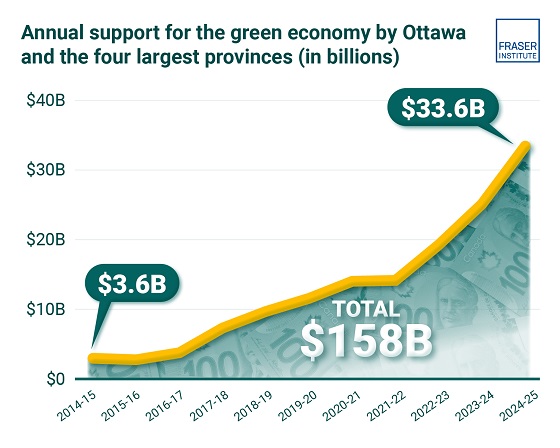Daily Caller
Freedom Of Speech Versus Preferred Pronouns? It May Go To The Supreme Court


From the Daily Caller News Foundation
By Frank Ricci
In the United States, where freedom of speech is not just a privilege but rather the cornerstone of our constitutional democracy, our First Amendment rights are at stake in Parents Defending Education v. Olentangy Local School District Board of Education.
In July, a three-judge panel of the U.S. Court of Appeals for the Sixth Circuit held that an Ohio school district could enact a code of conduct requiring students to refer to one another based on self-defined gender identity –– i.e., mandating the use of “preferred pronouns.” The ruling effectively compels speech from school-aged children that may contradict deeply held beliefs about biological sex. The Olentangy Local School District’s policy must be struck down.
Thankfully, not all bad decisions stick. Two weeks ago, the Sixth Circuit agreed to rehear the case en banc, a signal that a majority of the circuit’s judges may wish to reconsider the panel’s earlier July ruling. Regardless of the outcome, the loser is likely to file for review before the Supreme Court in the 2026 Term.
The stakes are high as the Sixth Circuit prepares to rule on a case that tees up yet another hot-button debate about pronoun policies, parental rights, religious liberty, and free speech in public schools.
This case is about more than policy. It encompasses the very essence of what it means to be free in thought and expression, particularly in our educational institutions.
The Olentangy Local School District has enacted rules seeking to dictate how students refer to one another based on self-defined gender identity, effectively compelling speech that may contradict deeply held beliefs about biological sex.
This is more than administrative overreach; it is an assault on students’ First Amendment rights to express their views on sex and gender without fear of coercion or reprisal.
That is why Yankee Institute has joined an amicus brief filed by Advancing American Freedom (AAF) to challenge this unconstitutional intrusion on free speech.
Those imposing such policies often argue that they create a psychologically “safe” environment for all students. But perceived “safety” for some should not come at the expense of freedom for all. The policy at issue does not limit itself to the constitutionally permissible goal of preventing harassment; instead, it imposes a new linguistic (and social) orthodoxy to which students must conform or else be punished.
As George Orwell warned, those who can control language can manipulate thought. The left understands this principle well, as demonstrated in Orwell’s novel “1984,” where Newspeak was enforced to narrow the population’s range of thought.
Such manipulation is not the role of public schools. Schools are supposed to be forums for debate, not indoctrination centers where only one viewpoint is tolerated. Unfortunately, all too often, they have become ground zero for identity politics, with teachers’ unions imposing their ideological agendas rather than providing the real skills our children need.
When a district like Olentangy decides to punish students for expressing beliefs about the immutability of sex, viewpoint discrimination is clearly at play. This is antithetical to the principles laid out by the Supreme Court in cases like Tinker v. Des Moines, where it affirmed that students do not “shed their constitutional rights to freedom of speech or expression at the schoolhouse gate.”
What is more, the policy’s enforcement could lead to a chilling effect on speech, where students would self-censor rather than risk punishment for using language that aligns with their personal beliefs.
This is not just about pronouns; it is about the broader implications for educating youth on tolerance, diversity and the respectful expression of differing opinions.
Olentangy’s policy fails to meet the stringent requirements set forth by the Supreme Court’s precedent on content-based restrictions. The evidence cited by the school district to justify these restrictions — newspaper stories, law review articles and therapist quotes — lacks the substantial proof of disruption necessary to override First Amendment protections.
As seen in Mahanoy Area School District v. B. L., discomfort or upset among students, without more, does not constitute the “substantial disorder” needed to justify speech restrictions.
If school administrators are handed the power to regulate speech, we are teaching our children — and society at large — that we value conformity over individual conscience. This case isn’t about protecting a minority from perceived offense; it is about safeguarding the rights of all students to freedom of speech and conscience, even (or especially!) when it is unpopular or contravenes current cultural trends.
It is time to remind our schools that they exist to maintain the spirit of free inquiry, not to enforce a singular, forced narrative on identity. Let’s ensure that American schools remain places where students can debate, learn and grow into informed citizens who cherish liberty over compelled conformity.
As Emily Dickenson stated: “Truth is such a rare thing, it is delightful to tell it.”
For the sake of our nation’s future, we must protect each individual’s freedom to speak truth as he or she sees it.
Frank Ricci is a Fellow at Yankee Institute and was the lead plaintiff in the landmark Supreme Court case Ricci v Destefano. He retired as a Battalion Chief in New Haven CT. He has testified before Congress and is the author of the book, Command Presence.
Business
Canada is still paying the price for Trudeau’s fiscal delusions

This article supplied by Troy Media.
 By Lee Harding
By Lee Harding
Trudeau’s reckless spending has left Canadians with record debt, poorer services and no path back to a balanced budget
Justin Trudeau may be gone, but the economic consequences of his fiscal approach—chronic deficits, rising debt costs and stagnating growth—are still weighing heavily on Canada
Before becoming prime minister, Justin Trudeau famously said, “The budget will balance itself.” He argued that if expenditures stayed the same, economic growth would drive higher tax revenues and eventually outpace spending. Voila–balance!
But while the theory may have been sound, Trudeau had no real intention of pursuing a balanced budget. In 2015, he campaigned on intentionally overspending and borrowing heavily to build infrastructure, arguing that low interest rates made
it the right time to run deficits.
This argument, weak in its concept, proved even more flawed in practice. Postpandemic deficits have been horrendous, far exceeding the modest overspending initially promised. The budgetary deficit was $327.7 billion in 2020–21, $90.3 billion the year following, and between $35.3 billion and $61.9 billion in the years since.
Those formerly historically low interest rates are also gone now, partly because the federal government has spent so much. The original excuse for deficits has vanished, but the red ink and Canada’s infrastructure deficit remain.
For two decades, interest payments on federal debt steadily declined, falling from 24.6 per cent of government revenues in 1999–2000 to just 5.9 per cent in 2021–22—thanks largely to falling interest rates and prior fiscal restraint. But that trend has reversed. By 2023–24, payments surged past 10 per cent for the first time in over a decade, as rising interest rates collided with record federal debt built up under Trudeau.
Rising debt costs are only part of the story. Federal revenues aren’t what they could have been because Canada’s economy has stagnated. High immigration, which drives productivity down, is the only thing masking our lacklustre GDP growth. Altogether, Canada was 35th among 38 countries in the Organization for Economic Co-operation and Development (OECD) for per capita GDP growth from 2014 to 2022 at just 0.2 per cent. By comparison, Ireland led at 45.2 per cent, followed by the U.S. at 20.8 per cent.
Why should a country like Canada, so blessed with natural resources and knowhow, do so poorly? Capital investment has fled because our government has made onerous regulations, especially hindering our energy industry. In theory, there’s now a remedy. Thanks to new legislation, the Carney government can extend its magic sceptre to those who align with its agenda to fast-track major projects and bypass the labyrinth it created. But unless you’re onside, the red tape still strangles you.
But as the private sector withers under red tape, Ottawa’s civil service keeps ballooning. Some trimming has begun, rattling public sector unions. Still, Canada will be left with at least five times as many federal tax employees per capita as the U.S.
Canada also needs to ease its hell-bent pursuit of net-zero carbon emissions. Hydrocarbons still power the Canadian economy—from vehicles to home heating—and aren’t practically replaceable. Canada has already proven that chasing net zero leads to near-zero per capita growth. Despite high immigration, the OECD projects Canada to have the lowest overall GDP growth between 2021 and 2060.
The Nov. 4 release of the federal budget is better late than never. So would be a plan to grow the economy, slash red tape and eliminate the deficit. But we’re unlikely to get one.
Trudeau may be gone, but his legacy of fiscal recklessness is alive and well.
Lee Harding is a research fellow with the Frontier Centre for Public Policy.
Troy Media empowers Canadian community news outlets by providing independent, insightful analysis and commentary. Our mission is to support local media in helping Canadians stay informed and engaged by delivering reliable content that strengthens community connections and deepens understanding across the country
Business
Trump Raises US Tariffs on Canadian Products by 10% after Doug Ford’s $75,000,000 Ad Campaign


From the Daily Caller News Foundation
President Donald Trump announced Saturday he is increasing U.S. tariffs on Canada by 10%, after the leader of the country’s largest province said he would be pulling an anti-tariff ad — but not until after it could air during Game 2 of the World Series.
Ontario Premier Doug Ford stated Friday his government plans to pull the ad in question after Trump said he was ending trade negotiations with Canada the night before. The spot featured the voice of President Ronald Reagan appearing to sharply criticize “high tariffs” and “protectionist” policy, and used an edited form of remarks the then-president made in an 1987 radio address.
In announcing his intention to pull the ad — which was intentionally broadcast on major networks in American markets — Ford noted he “directed” his team to keep it live until after the second game of baseball’s Fall Classic on Saturday night, a move Trump initially called a “dirty play.” The ad also ran Friday night during Game 1.
Dear Readers:
As a nonprofit, we are dependent on the generosity of our readers.
Please consider making a small donation of any amount here.
Thank you!
Trump then declared Saturday he was going forward with a 10% tariff increase on Canada.
“Their Advertisement was to be taken down, IMMEDIATELY, but they let it run last night during the World Series, knowing that it was a FRAUD,” Trump wrote in a Saturday afternoon Truth Social post. “Because of their serious misrepresentation of the facts, and hostile act, I am increasing the Tariff on Canada by 10% over and above what they are paying now.”
“Canada was caught, red handed, putting up a fraudulent advertisement on Ronald Reagan’s Speech on Tariffs. The Reagan Foundation said that they, ‘created an ad campaign using selective audio and video of President Ronald Reagan. The ad misrepresents the Presidential Radio Address,’ and ‘did not seek nor receive permission to use and edit the remarks. The Ronald Reagan Presidential Foundation and Institute is reviewing its legal options in this matter,’” Trump added in his post, citing an organization dedicated to continuing the late 40th president’s legacy.
“The sole purpose of this FRAUD was Canada’s hope that the United States Supreme Court will come to their ‘rescue’ on Tariffs that they have used for years to hurt the United States,” Trump’s post continues. “Now the United States is able to defend itself against high and overbearing Canadian Tariffs (and those from the rest of the World as well!). Ronald Reagan LOVED Tariffs for purposes of National Security and the Economy, but Canada said he didn’t!”
The ad campaign carried a price tag of $75 million CAD (Canadian), roughly equivalent to $54 million, according to The Associated Press (AP). The taxpayer-funded ad was paid for by Ontario’s provincial government, which the premier leads.
“We’ve achieved our goal, having reached U.S. audiences at the highest levels,” Ford said in a Friday statement reported by AP announcing his plan to pull the ad after Game 2. “Our intention was always to initiate a conversation about the kind of economy that Americans want to build and the impact of tariffs on workers and businesses.”
“I’ve directed my team to keep putting our message in front of Americans over the weekend so that we can air our commercial during the first two World Series games,” the Ontario premier added.
Trump announced Thursday night on Truth Social he was ending trade negotiations with Canada due to the ad.
“Based on their egregious behavior, ALL TRADE NEGOTIATIONS WITH CANADA ARE HEREBY TERMINATED,” the president wrote in the post.
“TARIFFS ARE VERY IMPORTANT TO THE NATIONAL SECURITY, AND ECONOMY, OF THE U.S.A.,” he added [sic].
“High tariffs inevitably lead to retaliation by foreign countries and the triggering of fierce trade wars. Then the worst happens. Markets shrink and collapse,” Reagan’s edited radio message can be heard in the ad, which included a backdrop of mellow music and a video montage of people and landscapes. “Businesses and industries shut down and millions of people lose their jobs. Throughout the world, there’s a growing realization that the way to prosperity for all nations is rejecting protectionist legislation and promoting fair and free competition.”
“America’s job and growth are at stake,” Reagan can be seen delivering the ad’s final line on a TV screen before the words “Ontario” and “Canada” flash on the screen.
The 2025 World Series features the Toronto Blue Jays and Los Angeles Dodgers. The Blue Jays are the only Major League Baseball (MLB) team based in Canada despite having only one Canadian-born player on its 26-man World Series roster.
Ford, a member of the center-right Progressive Conservative Party has led Ontario, Canada’s most populous province, since 2018. His late younger brother, Rob Ford, served as Toronto’s mayor from 2010 to 2014. The younger Ford made national headlines in 2013 after admitting to having smoked crack cocaine “in a drunken stupor.”
Premier Ford’s office did not respond to the Daily Caller News Foundation’s (DCNF) request for comment. The White House did not immediately respond to the DCNF’s request for comment.
-

 Alberta2 days ago
Alberta2 days agoFrom Underdog to Top Broodmare
-

 Business1 day ago
Business1 day agoTrans Mountain executive says it’s time to fix the system, expand access, and think like a nation builder
-

 Economy2 days ago
Economy2 days agoIn his own words: Stunning Climate Change pivot from Bill Gates. Poverty and disease should be top concern.
-

 Business2 days ago
Business2 days agoPaying for Trudeau’s EV Gamble: Ottawa Bought Jobs That Disappeared
-

 International1 day ago
International1 day agoBiden’s Autopen Orders declared “null and void”
-

 Addictions2 days ago
Addictions2 days agoThe Shaky Science Behind Harm Reduction and Pediatric Gender Medicine
-

 Business2 days ago
Business2 days agoClean energy transition price tag over $150 billion and climbing, with very little to show for it
-

 Internet1 day ago
Internet1 day agoMusk launches Grokipedia to break Wikipedia’s information monopoly




